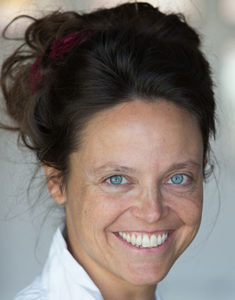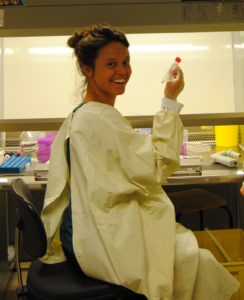

Henriette Christie Ertsås holds a PhD from the Department of Biomedicine (UiB) and CCBIO (Centre for Cancer Biomarkers). She stages what goes on inside the body, inside every individual cell, and let you get acquainted with teeny tiny biology barely visible in the microscope. She has researched cancer related to ageing at UiB and is completely appalled by the cancer cells’ total indifference to the consequences of its actions. Henriette also has an acting degree (MFA) and uses this combination of backgrounds to tell stories from the marvellous biology.
Science To the People have noticed that science is used as a provider of arguments to justify inequality and judge human expression in the name of technology optimism. Certain individuals insist on maintaining status quo and limit us according to gender, race or health based on how they choose to understand genetics. It is claimed that man behaves in one way or another because of his genes; it is biology, period. Science To the People does not want to contribute to this interpretation of “survival of the fittest” to promote asshole behaviour, but wish to take part in debates where natural science is distorted by people with questionable agendas.
Knowing facts of science has value in itself. Research to find out more about how the body works is important for other purposes than curing disease. Research has the potential to make us wiser about life. Science To the People wish that the dissemination of knowledge, which tend to stay among scientists, get debated at conferences and in academic journals, is made available to the people before pseudo-science catches their attention. Henriette’s background makes her particularly suitable for conveying the message of biology. After having experienced the presentations of Science To the People, audiences avoid being victimized by quackery and pseudo-science.

Science To the People communicates advanced biology in ways people understand by using metaphors from their own lives. The public can absorb information about difficult biological mechanisms through their knowledge of human relationships. What drives us – whether you are a human, a cell, a bacterium or virus – is common to all; the desire to survive and reproduce. The drama between cells and pathogens, or among individual cells, is second to none of Ibsen pieces. The collective way of life that rules among cells is in stark contrast to destructive individualism in the Western world, where more and more people are lonely, and end up on the outside of society. If you study a multicellular organism you will find that selfish behaviour among cells simply leads to cancer. Perhaps we humans have something to learn looking inwards?